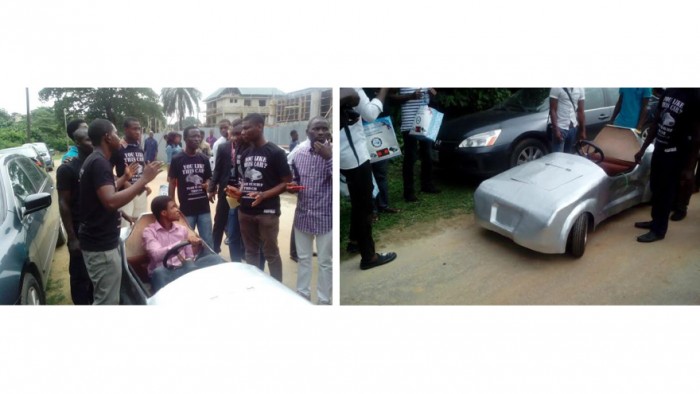
A team of mechanical engineering students from the University of Lagos (UNILAG) have designed and built D0VE P1, an environmentally friendly zero-emission electrical car. According to the students, the car doesn’t diffuse gas and doesn’t make use of fossil fuel.
The students, led by Olusanya Olukoya, unveiled their design at an exhibition organised by Designed for Zero Vehicle Emissions (D0VE). The project took a year to complete and runs using solar panels, which charge a high-voltage electric battery.
Olukoya is a car enthusiast who had wanted to pursue a degree in automobile engineering but couldn’t because UNILAG doesn’t offer it as a programme. Rather than being woebegone over the matter, Olukoya began designing and building cars in his own time and on his own dime.
Last year, the UNILAG students built an early prototype of this energy-efficient car for the international Shell Eco-marathon, a competition that challenges students from around the world to design, build and test ultra-energy efficient vehicles. They didn’t win, but building a car for the eco-marathon assisted the students in finessing the design and make strides to see D0VE 1 complete.
D0VE P1 is not designed for large families and speed freaks: It only has one seat and crawls along at 15 kilometers per hour.
The students have already started the design of D0VE P2, a younger, niftier version of D0VE P1. Olokoya says that ergonometric design; an accident prevention system, fingerprint port and anti-theft technology will be incorporated into the new design. “It will far exceed its predecessor in terms of design, technology and sound engineering,” says Olukoya.






